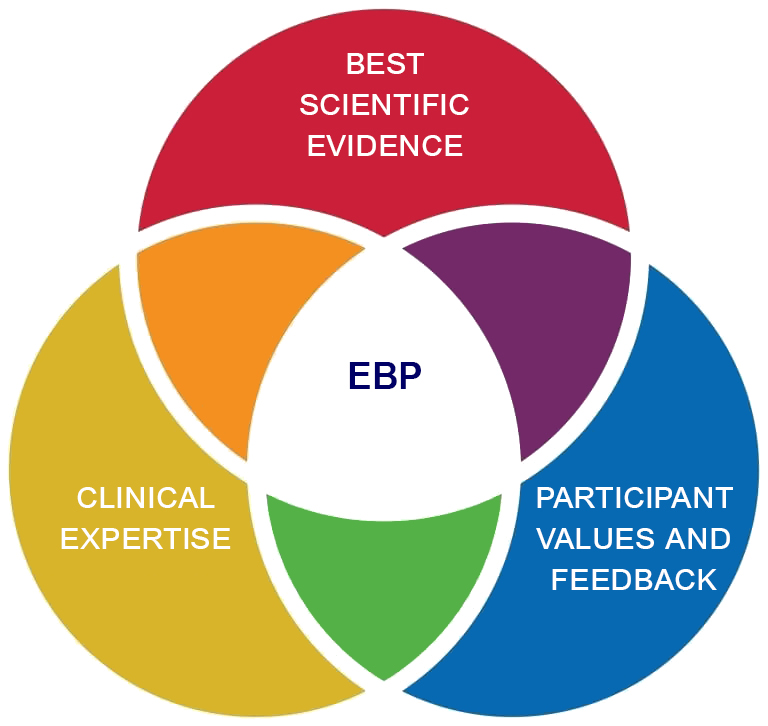What is an Evidence-Based Practice?
An Evidence-Based Practice, also referred to as an Evidence-Based Program, has been formally evaluated via scientific methods to determine if the approaches or methods result in the intended outcomes. For centuries, people have utilized many different approaches, reasons, and philosophies to explain and address life issues and problems. These solutions range from being based on opinion, tradition/culture, education, and experience, to no specific rationale at all. Some may be effective, some may be ineffective, and some may even be dangerous. In today’s world, which includes a high use and dependence on the internet, the number of solutions to issues and problems has multiplied significantly. It has become increasingly difficult to determine which of these so-called solutions to problems are based on advertising and marketing rather than on intended outcomes.
Research-Based ≠ Evidenced-Based
When solving problems, we often use the logic of Problem + Action = Outcome. Through trial and error, we learn what works and what does not work in our personal experience. Doing research (both formal and informal) involves reviewing and considering what and how others have addressed a similar problem or issue. We compare our outcomes with the outcomes of others. However, we do not always know the whole story when researching and comparing our outcomes. Evidence-based research enables us to compare outcomes more accurately, because it includes the whole story and whether or not the results are consistent with the intended outcomes.
Behavioral Health
In the area of behavioral health, there is much discussion around programs and practices for prevention, treatment, recovery, and maintenance. Programs typically have a beginning and an end, with specific goals, activities and intended outcomes. Practices typically are more of an approach to an issue, such as “trauma-informed,” or “client-centered.” Educators, community members, and behavioral health practitioners are faced daily with decisions about identifying and using the best programs and practices for those they serve. Sorting through the facts about so many programs can be overwhelming.
The program/practice is only one part to be considered.
In addition to scientific evidence of a program/practice, the expertise of the individual delivering the service, plus the perspective and feedback of the person receiving the service are also important components that contribute to achieving desired outcomes. This graphic shows how evidence-based practice incorporates the best scientific evidence, clinical expertise, and the participant’s values, preferences, and feedback. These components are all inter-related and contribute to the success or failure of achieving intended outcomes.

The information contained in this website is intended to provide information about practices and programs that might be helpful in the provision of prevention, treatment, and recovery/maintenance services to children and youth in West Virginia. It is the responsibility of those providing the program or practice to do so with fidelity and to possess the expertise, licensure, and training in accordance with specific program requirements. No information contained on this website should be viewed as prescriptive for any specific disorders or populations. It is also the responsibility of those providing the services to do so in accordance with recipients’ values, needs, and feedback. For more information, please see Terms and Conditions of Usage and Privacy Policy.
For more information about the Clearinghouse, please contact us at clearinghouse@helpandhopewv.org.
